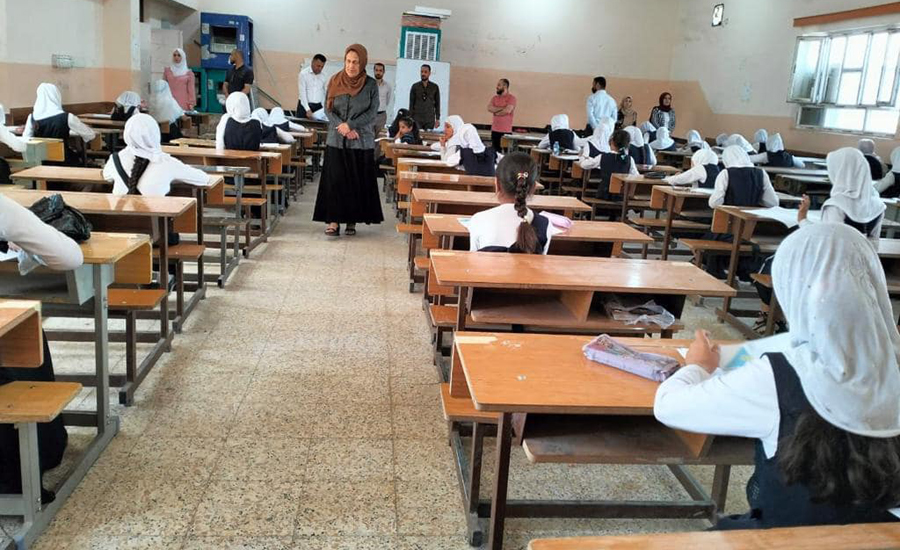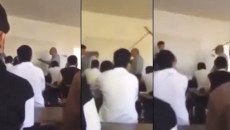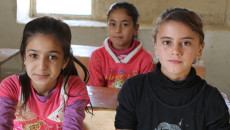The Iraqi ministry of education MoE has ordered installation of surveillance cameras at the offices of public-school principals to monitor abnormal moves such as loss of documents, leakage of exam questions, or any other problems related to the treatment of school administration with students and their relatives.
The new measure was issued by the Iraqi Ministry of Education on June 2nd and directed to all general directorates of education for implementation.
The decision coincided with the leakage of the questions of the grade nine’s final national examination and its circulation on social media networks, especially mathematics questions, pushing the examination supervision committee of the MoE postponed the examinations.
"The legal department of the ministry has issued the letter and asked us to install surveillance cameras in all the rooms of the school principals," Naziha Saadoun Daud, spokeswoman for the Kirkuk General Directorate of Education, told KirkukNow.
The decision is to monitor schools
"The decision is to monitor schools, and in the event of any incident, disappearance of documents, the disclosure of exam questions, or complaints of parents when they go to the principals, matters will be clearer.”
There are over 1,300 schools and nurseries in Kirkuk for over 356,000 students, according to figures of the general commission of statistics in 2017-2018.
Located 238 kilometers north of Baghdad, the oil-rich city of Kirkuk is an ethnically mixed province for 1.7 million Kurds, Arabs, and Turkmen, Muslims, Christians and Kaka'is. It has long been at the center of disputes between Baghdad and the Erbil.
Currently, the Iraqi army, local and federal police, Special Forces along with Shiite paramilitary of Popular Mobilization Forces PMF, undertake the security of Kirkuk province and the disputed territories.
The successive wars and disputes have affected education sector as most of the schools teaching in Arabic language, the main language of the country, are funded by the federal government in Baghdad while those teaching in Kurdish are supported by the Kurdistan Regional Government KRG.
The deterioration of public services and sectors have pushed investors to launch private schools, local and international, which was warmly welcomed by middle and high classes all over Iraq, in particular the Kurdistan region of Iraq KRI.
The decision is to have an oversight of schools
"Investigations have revealed that the examination questions were leaked through a guard at Baghdad's Rasafa Second district," Education Minister Ali Dlemi told a news conference on Friday.
The decision to install cameras in the principal's room coincides with the continued cases of violence and torture of students in schools. Last school year, two cases of violence against students in Kirkuk were declared, ine one of which a teacher broke the hand of a 12-year-old girl.
"But there have been no cases of disappearances or leakage of questions in Kirkuk so far," she added.
Education in Iraq used to be one of the best education systems in the region yet decades of conflict and under-investment in Iraq have destroyed the system. Iraq’s national budget has in the past years allocated less than 6% of its national budget to the education sector, placing Iraq at the bottom rank of Middle East countries.
Iraq’s infrastructure is in ruins in many parts of the country; one in every two schools is damaged and needs rehabilitation. A number of schools operate in multiple shifts in an attempt to accommodate as many students as possible, squeezing the little learning time that children have, a report by the UNICEF about education in Iraq has found in 2016.
“Children and teachers have experienced the trauma of conflict, displacement and the losses of loved ones. Such trauma has long-lasting psychological impact which may affect teaching and learning processes and abilities.”
There are over three million school-aged Iraqi children out of school. The situation is worse in conflict affected provinces, such as Salah al-Din and Diyala, where more than 90% of school-age children are left out of the education system.
Almost half of all school-age displaced children — approximately 355,000 children – are not in school. The situation is worse for girls, who are under-represented in both primary and secondary schools.







